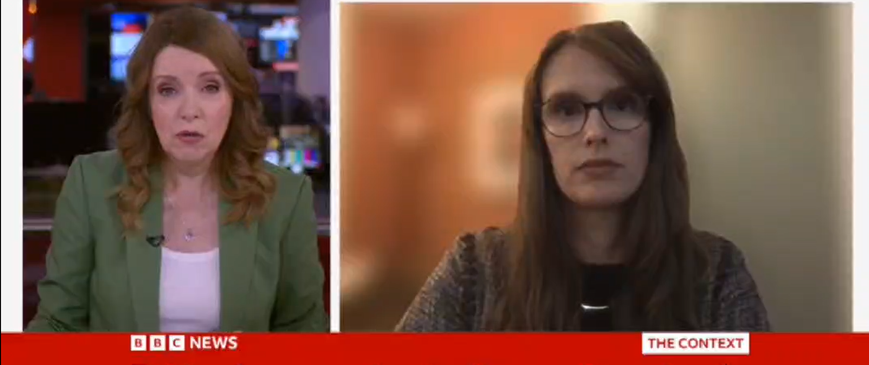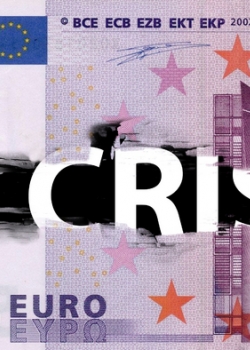Press
Time runs short for Europe to resolve debt crisis
27 November 2011
The New York Times
In a recent paper [Why stricter rules threaten the eurozone], Simon Tilford argues that imposing additional rules rather than creating a federal framework to allow the eurozone to commonly transfer or borrow money, as can be done in the USA, will end in disaster.
Brussels sees upcoming EU-US summit as 'strategic'
24 November 2011
EurActiv
According to Philip Whyte of the CER, the eurozone is in no worse economic position than the US: its public finances are in better shape than the US's and its overall level of private sector debt is actually lower.
The eurozone crisis - an opportunity for Britain? Don’t bet on it
24 November 2011
The Telegraph
According to Charles Grant, director of the CER, these measures combined would provide the basis for a workable deal. Regrettably, they don’t add up to more than a hill of beans.
Los británicos defienden a España e Irlanda: alemanes son también culpables de la crisis
23 November 2011
Invertia
Los expertos del Centre for European Reform (CER), una agrupación británica pro europea, Simon Tilford y Philip Whyte, aseguran en el informe “¿Por qué normas más estrictas ponen en peligro a la UE?” que no toda la culpa de la actual crisis es de los países periféricos, los mal llamados...
Medvedev warns US over missile shield plan
23 November 2011
Financial Times
According to Tomas Valasek of the CER, the new element in Mr Medvedev’s comments is his threat to sabotage the US-Russia arms control process. "Mr Medvedev seems to be taking the debate on missile defence into the strategic realm of US-Russia arms control."
Europe's options: Few, and shrinking
22 November 2011
The Wall Street Journal
"Europe is staring at a lost decade," says Simon Tilford, of the CER. Years of economic stagnation with persistent fears of sovereign and banking-sector defaults "will have a considerable impact on the broader international economy," he says.
Neo-Calvinists and the euro crisis
22 November 2011
The New York Times
Paul Krugman says "A very good essay by the CER warn(s) of the consequences of relying on the North European interpretation of the eurozone crisis”, which essentially sees the crisis as a morality tale, pitting those who sinned against those who stuck to the path of virtue.
Angela Merkel: Europe's saviour – or biggest problem?
22 November 2011
The Guardian
Merkel's greatest failing, says Charles Grant, of the pro-European think-tank the CER, is that she's either unwilling or unable to question prevailing German orthodoxies. "Truly great political leaders, real statesmen – they can change the weather," Grant says.
Neo-Calvinists and the euro crisis
22 November 2011
The New York Times
Ambrose Evans-Pritchard sends us to a very good essay(pdf) by the Centre for European Reform warning of the consequences of relying on the “North European interpretation” of the eurozone crisis, which essentially sees the crisis as a morality tale, pitting those who sinned against those who stuck to the...
Self-serving myths of Europe's neo-Calvinists
21 November 2011
The Daily Telegraph
If you have half an hour, read this paper (pdf) by Philip Whyte and Simon Tilford for the Centre for European Reform. It is a forensic look into the deeper causes of Europe's crisis and why the reactionary policies being imposed on two thirds of the eurozone by Germany's Wolfgang Schauble and the northern neo-Calvinists – with input from 1930s liquidationists at the ECB – will lead to certain disaster.
Spain - the fifth victim to fall in Europe's arc of depression
20 November 2011
The Telegraph
Philip Whyte and Simon Tilford argue in a paper for the CER that "the eurozone crisis is as much a tale of excess bank leverage and poor risk management in the core as of excess consumption and wasteful investment in the periphery."
En la crisis de la deuda fija las pautas e impone la austeridad: Alemania manda
20 November 2011
El Pais
"Los alemanes, con frecuencia, no aprecian lo suficiente cuán desgarradores son los cambios económicos que ellos recetan", dijo Philip Whyte, uno de los principales investigadores del CER, con sede en Londres.
Change course Germany, or risk eurozone collapse
18 November 2011
Channel 4 News
Philip Whyte, senior research fellow at the pro-European CER told Channel 4 News: "The ECB has engaged in government bond purchasing, but has signalled its reluctance to do so. The financial markets have never believed the ECB is behind this."
Eurozone crisis: live blog
17 November 2011
Financial Times
Simon Tilford, chief economist at the CER, belives that Germany is becoming increasing isolated. "The French government, shaken by the rise in its borrowing costs, is becoming more openly critical of Germany’s refusal to support more concerted ECB action to stabilise the markets. Italy now has a prime minister with real credibility (and a background in economics); it will be harder to simply brush aside Italian concerns. And crucially, Dutch, Austrian and Finnish borrowing costs are rising now quite quickly relative to German ones.
Germany holds key to eurozone rebalancing
17 November 2011
Reuters
In a pamphlet [Why stricter rules threaten the eurozone] released last week, the CER, a think tank in London, advocated an inflation target of 3 percent with inflation allowed to deviate by 1 percentage point in each direction.
No common bond
17 November 2011
United Press International
"The Germans have been able to rely on the French, the Dutch and the Austrians. But if they get dragged into this and their borrowing costs continue to rise, that could influence whether they continue to back Germany and the line taken on the eurozone crisis," said chief economist Simon Tilford at the CER.
Atmosphere tense over confusing stance on Europe
17 November 2011
Financial Times
As Charles Grant of the CER puts it: "The risk is that Cameron will start making impossible demands. If pushed too far, Germany will go for a completely new treaty outside the EU framework. That will trigger a real crisis in the relationship."
From love-in to brush off: Staying close is hard to do
17 November 2011
The Times
"He is rattled. France is being dragged into this crisis," said Simon Tilfordof the CER. Britain is a source of particular irritation, he suggests, because Mr Cameron and George Osborne are saying in public what the French only say in private.
Europe's debt crisis moves toward bigger economies
16 November 2011
National Public Radio
"Even economies that do not have the fiscal problems of some of the other eurozone economies are considered a risk, [they] are being shunned," says Simon Tilford, chief economist of the CER in London.
Widening split in Europe on the virtue of austerity
16 November 2011
The New York Times
But, said Mr Tilford, the eurozone "is going to crack unless ECB enters the picture soon." If the central bank really starts carrying out the lender of last resort function, then the crisis can still be reined in, he and others said.












